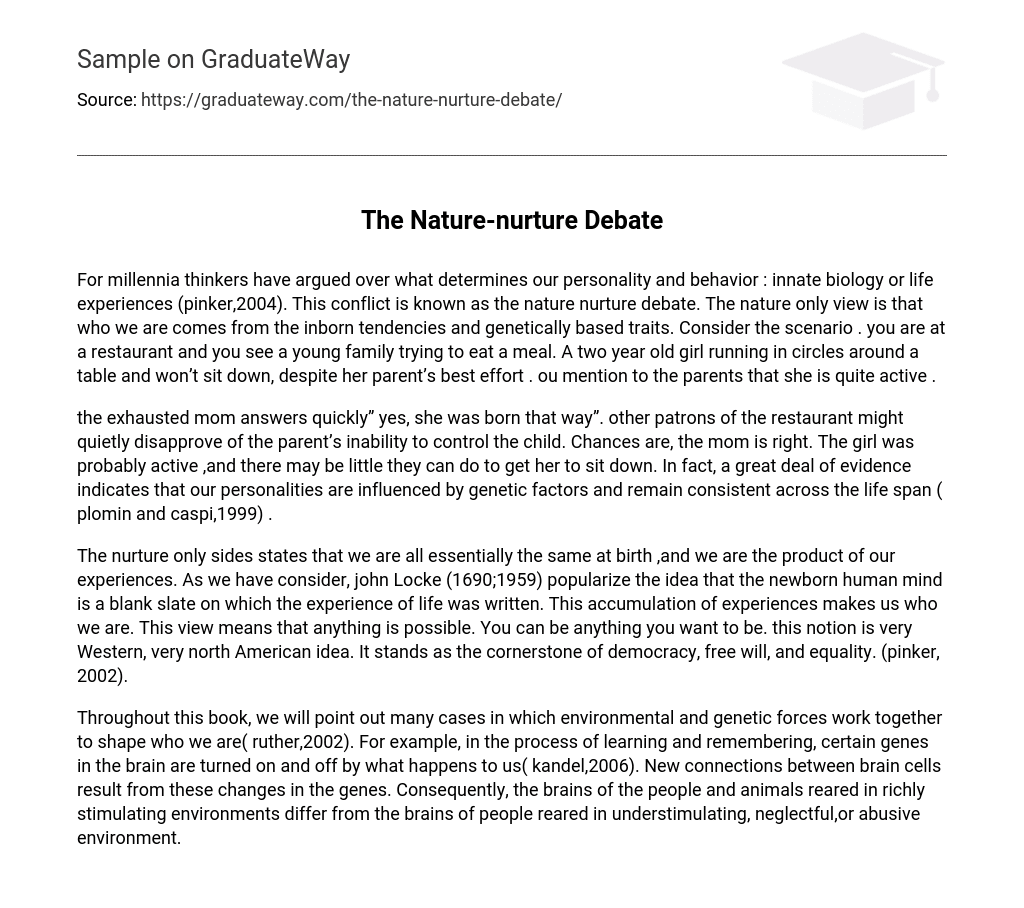In the ongoing debate concerning nature versus nurture, there has been a longstanding argument regarding whether our personality and behavior are determined by innate biology or life experiences (Pinker, 2004). This discussion is commonly referred to as the nature nurture debate. The perspective aligned with nature asserts that our identity and characteristics originate from inherent tendencies and traits that have a genetic basis. Let’s consider a scenario: you find yourself at a restaurant observing a young family who is struggling to have a peaceful meal. Despite the parents’ best efforts, their two-year-old daughter refuses to sit down and instead runs in circles around the table. You casually remark to the parents about how active she appears.
The tired mother responds promptly, affirming that her child was born with her current behavior. Some people in the restaurant may silently disapprove of the parent’s perceived lack of control over the child. It is likely that the mother’s claim is accurate, as the girl is likely to be naturally active and it may be challenging to make her sit still. In fact, extensive evidence suggests that our personalities are influenced by genetic factors and remain stable throughout our lives (Plomin and Caspi, 1999).
The nurture perspective, championed by John Locke (1690;1959), asserts that we are all born fundamentally identical and shaped by our experiences. Locke popularized the concept of the newborn human mind as a blank slate, where life experiences are written upon. Our collective experiences ultimately shape our identity. This viewpoint suggests limitless potential for achievement and the freedom to become whomever we desire. It is particularly prominent in Western and North American societies, forming the basis of democracy, free will, and equality (Pinker, 2002).
The text in this book emphasizes how environmental and genetic factors work together to shape our identity (Ruther, 2002). In particular, when it comes to learning and memory, certain genes in the brain react to external events and experiences, causing these genes to turn on or off (Kandel, 2006). This leads to changes in connections between brain cells. As a result, individuals and animals who grow up in enriched and stimulating environments have different brain structures compared to those raised in unstimulating or harmful environments.





